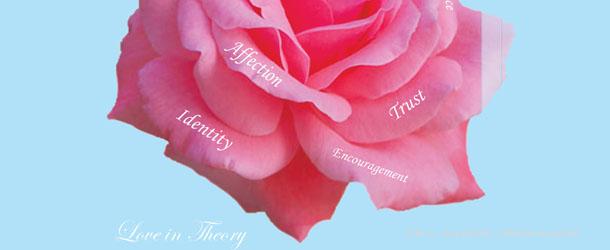Psychological needs for love, belonging lie beneath much of our most common behavior
On June 25 1967, about 4 million viewers rushed to television sets in 26 different countries to watch Our World, television’s first live international satellite program. Many artists, both on canvas and in the recording studio, were featured. Chosen to represent the United Kingdom was the already-famous band, the Beatles. Here they debuted their now-classic “All You Need Is Love.”
In this song, the Beatles said that the only thing you need to get through life is love. But in the wake of Valentine’s Day, do their lyrics still ring true?
It would certainly seem so. Love takes many forms: needing affection from parents, needing acceptance from peers, or needing romance from significant others. People have always possessed the need to love and be loved.
“When you’re in high school, you don’t want to feel lonely,” said sophomore Emma Tyler. “[The need to love and be loved] happens just because of wanting not to be alone.”
Junior Tommy Ostrem agrees.
“Some people like to be alone for a little bit,” Ostrem said. “But as a whole, we don’t like to be alone too much. We want to be loved.”
In the 1940s, American psychologist Abraham Maslow developed the concept of “hierarchy of needs”, where the need for love is the most important, aside from food and shelter.
German-born American psychologist and psychoanalyst Erik Erikson is known for his theory on life development, published in the 1950s-1960s. According to Erikson, there are eight different stages in life, in which people develops psychologically.
Stage six is during the ages of 19 to 40. It focuses on the development of intimate, loving relationships with others. Erikson believed in order to achieve this stage, one had to be sure of themselves, which comes from stage five.
Stage five happens between the ages of 12 to 18. It focuses mainly on the search for one’s identity and a comfortable sense of self. Here it is vital to have encouragement to explore different identities before finding oneself.
Encouragement often comes from a parent or someone that’s trustworthy and provides support. Trust is fostered in infancy, when a child develops trust for a parent who provides them with reliability and affection.
As shown by Erikson’s theory, love in later life develops based on love in early life. A study conducted back in the 1950s by psychologist Harry Harlow showed just how much the lack of love can damage a child.
Harlow separated infant rhesus monkeys into two groups within hours of birth. He placed one group with a surrogate monkey mother machine covered with soft terry cloth. He placed the other with a similar model “mother” but this one was made out of harsh wire. He kept the monkeys in these environments for quite a while and observed that while they grew at the same rate physically, they developed quite differently psychologically.
Another of Harlow’s experiments involved scaring the infant monkeys with loud noises. The monkeys in the first group went to their “mother” and clung onto it, rubbing up against it until they were eventually soothed back into a state of calm. The other group, however, didn’t go to their “mothers”. Instead, they pitched themselves onto the ground and hugged themselves tight while rocking back and forth, not comforted at all.
Harlow’s monkey experiment further proves Erikson’s theory that the ability to love in later life is affected by love, or lack thereof, in earlierlife.Childrenthathavebeen deprived of affection sometimes have a twisted view of what love is.
“It’s interesting because when you get kids that need to be loved, it sometimes overrides security,” said Minnehaha guidance counselor Lauren Bae. “When I worked at Children’s [Hospital], I saw many children that were physically abused, they had burn marks and rope marks all over and some were beaten with belts, but they did not want to leave their mom and dad.
Sometimes human beings want to be loved more than anything else, even more than physical safety.”
While it can be misused, love can also encourage others to reach their full potential.
The humanistic psychologist Carl Rogers had a theory that basically states if you accept a person and have an unconditional regard for them, they will become all that they can be. Love proves to be a vital step in becoming someone who is self-actualized, someone who isn’t afraid to be who they really are because they know someone will always be there to love them.
Like in Erikson’s development chart, love and trust can push someone to find their true identity which domino-effects into the ability to foster intimate relationships with others.
Junior Joelle Wilson agrees that love can be seen as a positive affirmation of who you are.
“[When you’re loved] you just automatically feel good about yourself, which makes you feel good about what you’re doing,” she said.
Some teens incorporate a spiritual dimension in their need to love and be loved.
“I’d say I love because Jesus has given me love,” Ostrem said. “And as a way to reflect His love, I can love other people despite the bad things that they do because Jesus has loved me despite the bad things that I’ve done.”
While love can change or fade, some teens find solace in the consistency of spiritual love in their lives.
“In a relationship with God, loving too much is the best thing,” Wilson said. “You may do something wrong, but God loves you too much to let you go.”

